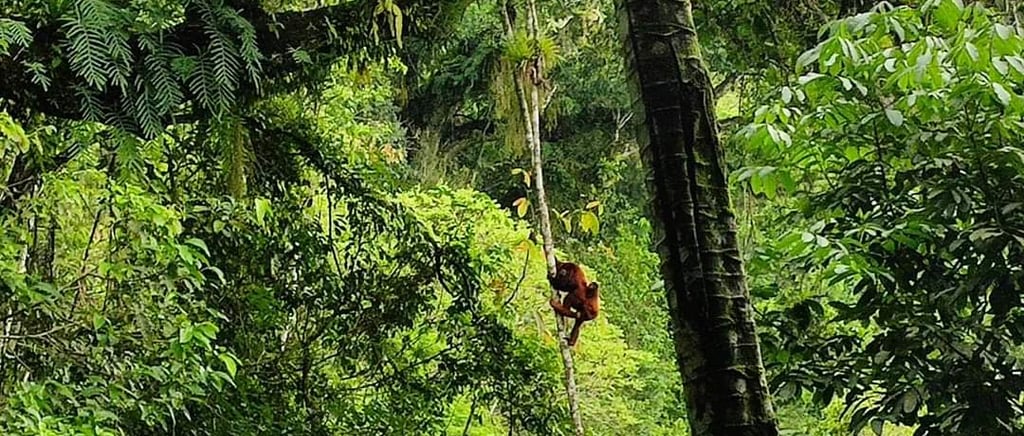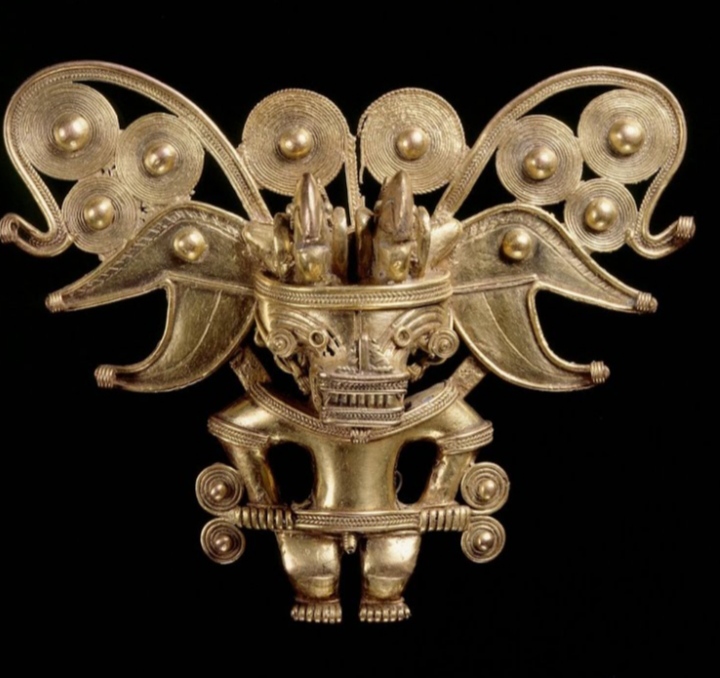How did the Lost City Trek begin?
The tours to the lost city began in 1982, they were made by farmers who became guides after they had discovered the City. They started bringing tourists by themselves, they were not trained but they knew the mountains very well. By then, there were no open trails, no camps, the food was carried by the guide and a cook and it took about 6 days to achieve the hike.
In 1989, by agreement with the communities, the first tour operator was created to regulate the work for all the people of the community. Tourism became the only and best source of income for the people who lived in such a difficult-to-access region, with time, the organization improved and so did the roads, campsites, and construction of bridges, among other things.
More operators were authorized by the community and employment was generated for cooks, food transporters, and guides, all of whom had to be from the same community. The guides were able to complete their studies to obtain a professional certificate and thus be 100% prepared to provide the best guidance and care for people who decided to enter the rainforest to find this imposing archeological site, full of history and culture. However, for many of them, it was simply too complicated to study English, they could only tell their incredible stories and recommendations when someone in the group could speak Spanish and translate for their group mates.
In mid-2009 one of the operators took the initiative to negotiate the price of the tour with a bilingual person doing the trek, with the skills to interpret the information provided by the local guide. The other companies took on the same task, negotiating with the tourists so that they could give all the information to the rest of the group. This idea was good only for a while, the tourists realized that they could not enjoy the tour like the others, they did not understand many of the guide's idioms and expressions, and they were always thinking about how to translate the information and many times there was not a single tourist who could understand Spanish, it was then when the communities agreed to include the services of Interpreters to their work staff, many people outside this region with good English speaking skills had the opportunity to be part of this incredible adventure. This is how interpreters arrived in this region, without much experience, but with a great desire to learn, fascinated by the new culture they discovered hidden inside the mountains. The interpreters were called to provide their services whenever they were needed, and with time they became the guide's support. On this trek, the guides, responsible for the safety of the group, usually follow behind. The interpreters, familiar with the way, lead, telling the many stories which makes this experience, unique, and enjoyable for each visitor.
That is why today, people who come to make this hike, can not only enjoy the archaeological site, the views, and natur, but also stories and information from working staff from different regions. The guides are locals from the Sierra Nevada, the cooks are from the surrounding villages such as Guachaca and Puerto Nuevo, and Bonda, and the translators are 2% from the city of Santa Marta and the rest are mostly from Venezuela and other regions of Colombia, such as Bogota, Armenia, and Barranquilla, which results in a diverse tour staff, each bringing their unique energy and perspective to the realization of this incredible experience that is worth doing at least once in a lifetime.
How did Wiwawalker begin?
Many translators, not being able to be hired, worked for a couple of months, got bored, and left. But some stayed.
There was particularly one of them with a lot of passion to learn, to go a little beyond the expectation, He became an expert on the way, to the point that the tourists who made the tour with this character recommended him a lot, his English was some of the best.
This character reached an agreement with the local guides who in his opinion were the most passionate to offer different routes, more dynamic and interactive experiences where people could understand each other in just 4 days, so everyone who made the tour with him was amazed by his charisma, his way of expressing himself and the quality of service of this young man of just 26 years. He was making even 7 tours a month, which was really good because he was able to work a lot, but at the same time it was very hard, So he started finding the best guides and interpreters to replace him when he wasn’t able to go on the tours with all the people who were requesting him.
That was how Wiwawalker was created, someone who was in love with the trail and the wiwa culture created it to advise people and help them have an incredible staff for 4 days. Eventually, more interpreters were added to the wiwawalker project, they started being recommended for their great passion and service during the 4 days of hiking, motivating each person in the harder moments, guiding and telling them the most interesting stories from La Sierra. Everybody who trusted this small organization of guides was happy enough to keep recommending their great talent for hiking and their passion to provide the best service even from the booking process
Wiwawalker started creating and sharing their own information, adding pieces of advice depending on the season. They created their own platform, where they were able to give real information in time, of many more options to do the Lost City Trek, the special options were offered at a more affordable price than with the agencies because they deal directly with the guides and the providers along the trail (people in charge of camps and food transporters). They found out they were good at providing this service and they were actually really helpful to many tourists who weren’t able to understand Spanish. They really liked it when tourists came back thanking them because they had the best guide they could have asked for, that they had no problems because they were informed of every possible situation before the tour started.


What is WiwaWalker’s Mission?
Our main mission is to make a difference, to strengthen the inclusion of indigenous communities, experienced guides, and translators from different regions through sustainable community-based tourism. We want to generate good jobs providing the opportunity for locals to have a liable income and to undertake future university careers that will encourage the learning of languages, archaeology, biology, botany, and ecological walks. Preserving the wonderful connection that exists between the local communities and the thousands of visitors to the most sacred and important territories in Colombia. For this, we maintain an infinite appreciation for the biodiversity, preservation, and sustainability of nature.

